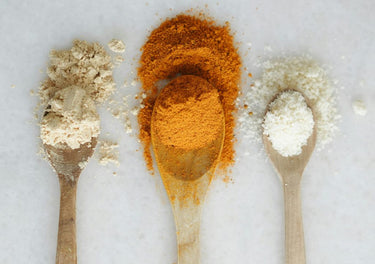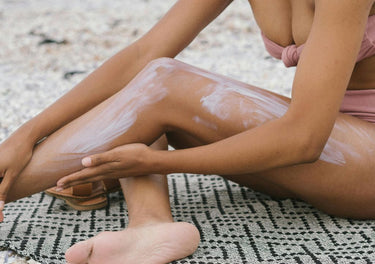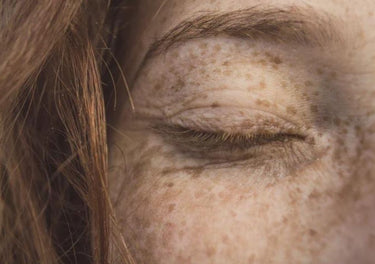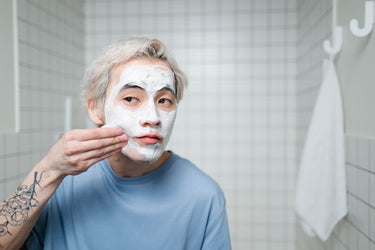4 Common Skin Problems That Are Made Worse In Winter (And What To Do About It)
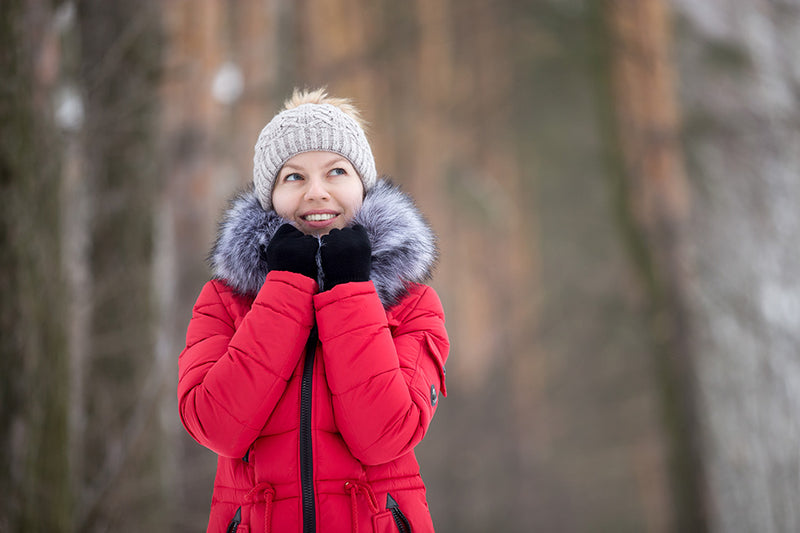
It comes as no surprise that most of us dislike this time of year. It's not our skins favourite environment to bloom in either. In fact many skin complaints that are normally easily manageable are aggravated at this time of year.
Rosacea
Chronic, incurable and quite often out of control. Three things you don't want in a skin condition. Unfortunately, Rosacea is all three of these. This misunderstood long term skin condition is often misdiagnosed and can be made worse by incorrect therapies. Rosacea commonly affects the central area of the face, cheeks and nose. The skin is often hot and flushed with a rash and in some severe cases blemishes or pustules may be present.Rosacea flare ups are often made worse in cold temperatures. This makes Winter a testing time. Conversely, high indoor temperatures from central heating, also aggravate sufferers.Although there is no known cure for Rosacea, it can be controlled;- Don't spend too long outside in harsh weathers. Avoiding snow storms and windy days are a must. Try wearing a scarf to protect your face as much as possible.
- Always wear suncream. UV radiation is strong, even in winter months. It's also the biggest trigger for Rosacea flare ups.
- Don't get too merry on the sherry. Alcohol and hot drinks should be limited to avoid flushing.
- Stay clear of hot curries, spicy foods and limit your dairy. These food groups have been linked to Rosacea in some people. Try writing a food diary to keep track of your triggers.
Dehydration
It may surprise you that dehydration is one of the most common things I see in clinic, even in winter. It's often misdiagnosed as 'dry' skin. We tend to think of dehydration occurring in summer months when the weather is hot and the air is dry. However, winter is when we swap the water bottle for the hot flask. With fear of sounding like a broken record, water is one of the most important staples in your skincare routine. The only way to truly hydrate is internally. The foods we eat can provide a good source of nourishment for the skin. A diet high in Omega 3 will keep your skin lipids balanced and result in a plump glow. Central heating is one of the biggest skin dehydrators. If you spend a lot of time indoors it might be worth investing in a humidifier. This will add moisture to the air and can help banish sore throats, cold and flu symptoms.- Keep your fluid intake high. Aim to drink 2-3L of water a day and swap caffeinated drinks for hot water and lemon.
- Eat oily fish, eggs and nuts to keep preserve your skins essential fatty acids. Try adding in an Omega 3 supplement of 2000mg daily.
- Limit the use of your central heating. Try wrapping up in a jumper, blanket or better yet, your duvet.
Psoriasis
Not to be confused with eczema. Psoriasis is a chronic skin disease that can't be easily hidden. It's name comes from the Greek meaning 'itch' and is caused by the overproduction of new skin cells. The acceleration of these cells causes an accumulation on the skin of new and old cells. A typical psoriasis skin will have red raised patches with silvery scales and can be very irritating and itchy. The condition is made worse by stress, infection and cold weather. This means winter time can be a difficult time for sufferers. Keeping cool and avoiding stressful situations where possible will help limit your symptoms. It is thought Psoriasis comes from an inherited immune system disorder.- Avoid hot baths and stick to luke warm showers to prevent irritation.
- Don't use soaps and other cosmetics that may contain irritants.
- Sleep in a cool room, open your window and avoid central heating when possible.
- Try not to scratch as this can lead to cuts, open wounds and scars. In severe cases, mittens can be worn at night.
Dark circles
Like 20% of people in the UK, I have self diagnosed myself with seasonal affective disorder. It's not that I don't like winter, its just that I generally don't feel as happy without the light nights, warm air and vitamin D. It also affects the way I look. My skin appears a little duller, my hair a little flatter and my eyes a little darker. I have never been the best sleeper but winter mornings mean even on a good 8 hour stint I still feel less than refreshed. In my early 20s I could hide it with a good concealer and a strong coffee.. it's a little more difficult to mask now.Dark circles are common and are often due to the visibility of blood vessels under the skin. The skin around the eye area is particularly thin and translucent. One of the best ways to target this problem is by strengthening the tissue below the eye area with a good quality eye cream and keeping as hydrated as possible to eliminate poor circulation.- Invest in a good eye cream that contains hyaluronic acid and supports collagen.
- Aim for an average of 8 hours sleep a night. Too little (and too much) sleep can make dark circles worse.
- Limit the amount of caffeine you drink. Try swapping your morning espresso for a green tea. It contains much less caffeine and has high antioxidant properties, win win.
- Invest in a non surgical eye procedure. Transderm mesotherapy (no needles) encourages circulation and hydration and is particularly successful on the under eye area. Treatments should be carried out every 6 weeks to maintain results.
For more information on any of the above conditions, call our clinic on 0113 282 3300.
Written for you by: Emily, Face the Future
Image source: freepik.com












